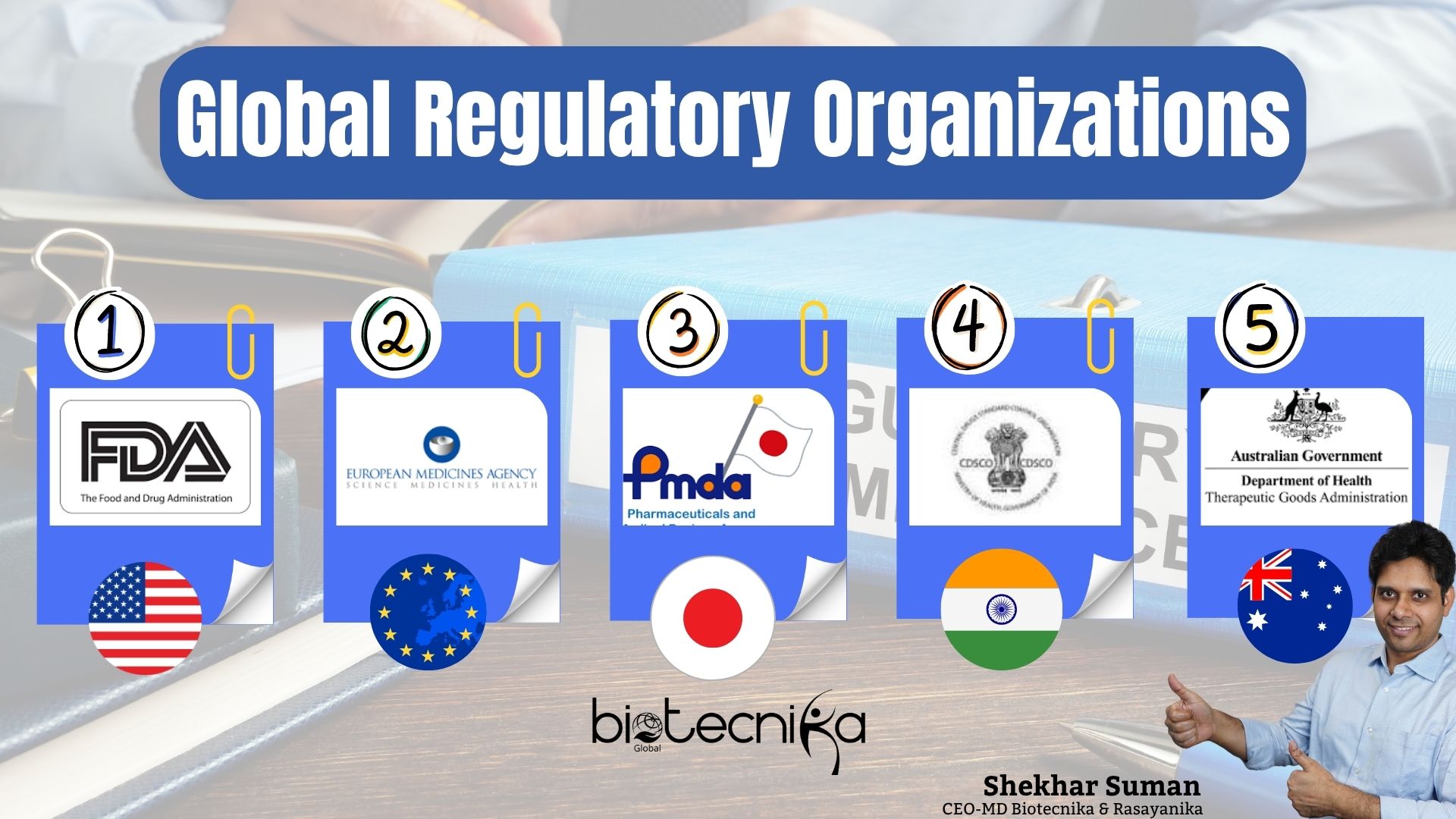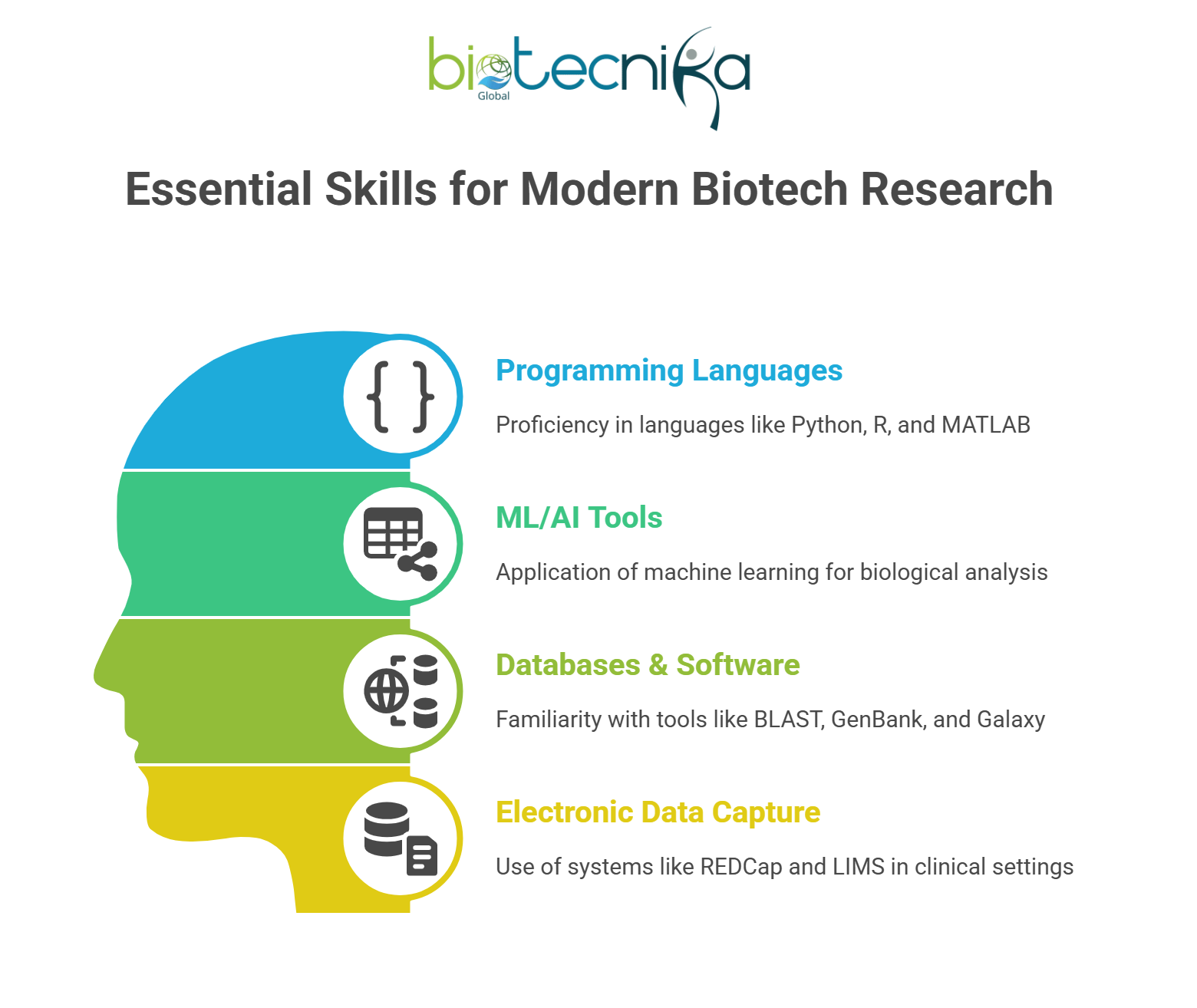Global Biotech Jobs – Top Strategies to Land Jobs in 2025
The Biotech field is booming worldwide. From advanced research in Gene Editing to Personalized Medicine and Green energy, biotechnology is transforming every sector. But with this explosive growth comes tough competition. Landing a role in Global Biotech Jobs requires more than just a degree; it demands a strategic combination of skills, experience, and global awareness.
This article will give a brief overview of breakdown expert-backed strategies to help you stand out in the crowded Biotech job market, whether you are a fresh graduate, a postgraduate, or a mid-career professional seeking global opportunities.
- Understand What Drives the Global Biotech Job Market: To stand out, you must first understand what companies are hiring for and where. The Global Biotech Jobs landscape varies depending on geography and focus area:
- North America (USA & Canada): Dominated by pharmaceutical innovation, Biotechnology Startups, and Clinical Research Organizations. Demand is high for roles in drug discovery, gene therapy, and data analysis.
- Europe (Germany, UK, Netherlands): Strong in vaccine development, diagnostics, green biotech, and advanced therapies.
- Asia-Pacific (India, China, Singapore): Fast-growing market with high investments in research infrastructure, bio-manufacturing, and public health innovations.
Understanding and analyzing which region aligns with your expertise helps you target the right companies and develop relevant skills for those markets.
- Build a Specialized Skill Set: A general biotech degree is not enough for Global Biotech Jobs. The biotech industry is looking for candidates who can hit the ground running with specialized techniques. The following are the given techniques.
- CRISPR & Gene Editing: Skills in genome engineering tools like CRISPR/Cas9 are highly sought after in therapeutic and agricultural biotech sectors.
- Next-Generation Sequencing (NGS): Proficiency in sequencing platforms and analysis tools (e.g., Illumina, Oxford Nanopore, FASTQ files).
- Bioprocess Engineering: Required for roles in fermentation, scale-up, upstream/downstream processing in biologics production.
- Bioinformatics & Computational Biology: Data scientists who can work with omics datasets, machine learning models, or statistical tools are in high demand.
- Regulatory Affairs & Clinical Trials: Knowledge of International Council for Harmonisation (ICH) Good Clinical Practice (GCP), protocol writing, as well as submission regulations, can help land roles in CROs or pharma firms.
Tip: You can enhance your profile by gaining these skills through certificate programs, internships, or research experience.
- Gain Global Exposure: Recruiters value candidates with international experience, as well as those who possess cross-cultural understanding. This demonstrates that you can adapt to global networks and collaborate with them across time zones and regulatory boundaries.
Ways to gain this exposure:
- International Internships: Organizations such as Amgen Scholars or the German Academic Exchange Service (DAAD) offer paid internship opportunities abroad.
- Conferences & Workshops: Events such as BIO International, the American Association for Cancer Research (AACR), and the Society for Laboratory Automation and Screening (SLAS) provide opportunities to interact with global thought leaders and employers.
- Joint Degree or Exchange Programs: Participating in Global Biotech academic collaborations boosts your credibility.
- Collaborative Research Projects: Work on multi-institutional or international studies, especially in clinical research.
Benefit: This sets you apart from local-only candidates applying for Global Biotech Jobs.
- Leverage Bioinformatics and AI Integration: Modern Biotech research has a vast data set. Employers are looking for professionals who can analyze large datasets, automate workflows, or model biological systems digitally.
In-demand skills include:
- Programming Languages: These programming languages are in high demand, including Python, R, and MATLAB, which are widely used in Bioinformatics as well as Systems Biology.
- ML/AI Tools: Knowing how to apply machine learning for protein folding, biomarker discovery, or patient stratification.
- Databases & Software: Familiarity with BLAST, GenBank, Bioconductor, or Galaxy.
- Electronic Data Capture (EDC): Tools such as REDCap, OpenClinica, or Laboratory Information Management Systems (LIMS) are standard in clinical and laboratory settings.
Action Point: Completing even a few Artificial Intelligence or Bioinformatics courses or projects will boost your value for global biotech job opportunities. There are many online learning platforms, such as Biotecnika, that provide AI/ML and Bioinformatics courses.
- Develop a Strong Online Professional Presence: Recruiters often screen your digital presence before they even contact you. Here’s how to stand out:
- LinkedIn Optimization: Use a professional photo and write a compelling, concise headline, for example, ‘CRISPR Researcher | Bioinformatics Analyst.’ Write a crisp and concise bio and list your achievements.
- Regular Posting: Share updates from research papers, industry trends, or your projects.
- Engage in Groups: Join communities like “Biotech Connections” and “Global Biotech Network,” and contribute to discussions.
- Blog or Portfolio: Displaying your work on a personal blog or GitHub portfolio is particularly beneficial for data-driven or research-oriented roles.
Pro Tip: A strong online presence boosts your visibility in search results for Global Biotech Jobs.
- Customized Applications to Each Job Role: Using a sample resume for every job post doesn’t work, especially when you are applying for global biotech jobs. Tailor your applications according to each job role.
Here’s how to tailor your applications:
- Customize Your Resume: Use keywords from the job description (e.g., “cell culture,” “HPLC,” “GLP compliance”).
- Adapt to Local Norms: For example, CV formats in Germany (Lebenslauf) differ significantly from those in the U.S.
- Cover Letters Matter: Use these to show why you’re a good fit and how your goals align with the company’s mission.
- Compliance Knowledge: If applying for U.S.-based Global Biotech Jobs, mention experience with the FDA; for Europe, mention European Medicines Agency (EMA) or Registration, Evaluation, Authorisation and Restriction of Chemicals (REACH) knowledge.
Outcome: This targeted approach enhances your chances of advancing past the screening stage.
- Network Like a Pro Online and Offline: Most job offers in Biotechnology come through referrals or insider connections, rather than cold applications. Build a strong online presence through LinkedIn.
Strategies to build your network:
- Biotech Meetups & Webinars: Attend conferences and Biotech meetups to connect with professionals in your area or niche.
- Professional Societies: Join organizations like the International Society for Computational Biology (ISCB), the American Society for Biochemistry and Molecular Biology (ASBMB), or your country’s Biotech council.
- Informational Interviews: Reach out politely to people on LinkedIn and ask for career advice or insights.
- Alumni Networks: Reconnect with peers or seniors working in companies that offer global biotech jobs.
Networking Tip: Don’t forget to follow up after events or chats. A simple “Thank You” email keeps the door open for future opportunities.
- Master the Soft Skills Global Employers Seek: In international biotech environments, technical skill is expected, but soft skills are what help you thrive.
Key soft skills:
- Communication: Whether you are writing Standard Operating Procedures or presenting data, clarity matters a lot.
- Adaptability: Biotech industries are seeking employees who can quickly learn new protocols, tools, and techniques.
- Teamwork: Biotechnology projects are highly collaborative, and being a team player is very important.
- Problem-Solving: Employers value those who can troubleshoot experiments or suggest innovations under pressure.
- Time Management: Global teams often work across time zones and deadlines.
Why it’s important: Soft skills are often the reason someone gets promoted or chosen for leadership roles in Global Biotech.
- Stay Updated with Global Regulatory Organizations: If you are aiming for roles in Clinical Research, Regulatory Affairs, or Drug Development, you must understand global rules and ethics.
Regulatory knowledge to build:
- Food & Drug Administration (USA): Investigational New Drug (IND), NDA, GCP guidelines
- European Medicines Agency (Europe): Clinical Trial Regulation, ATMPs
- Pharmaceuticals and Medical Devices Agency (Japan): Drug review and approval process
- Central Drugs Standard Control Organization (India): Clinical trial approvals and pharmacovigilance
- Therapeutic Goods Administration (Australia): Safety guidelines and certifications
Pro Tip: Mention a training certificate or any certification course in regulatory compliance in your CV to grab the attention of Global Biotech Jobs in compliance-heavy fields.
- Seek Mentorship and Career Guidance: Mentorship can accelerate your career path by helping you make informed decisions and avoid common mistakes.
Ways to find mentors:
- University Professors or Project Guides
- LinkedIn Outreach: Look for professionals who hold titles you aspire to.
- Industry Events: Engage with speakers or panelists after the event.
- Professional Platforms: Use platforms like MentorNet or Biotech Connection India
Quick Guide: How to Stand Out in Global Biotech Jobs
| Strategy | Why It Matters |
| Specialized Skills | Aligns you with high-demand biotech roles globally |
| Global Exposure | Shows adaptability and cross-cultural competence |
| Bioinformatics & AI | Opens doors to data-driven and hybrid biotech careers |
| Regulatory Knowledge | Essential for clinical, QA/QC, and compliance positions |
| Tailored Applications | Increases your chances of getting shortlisted |
| Online Professional Presence | Boosts visibility to international recruiters |
| Smart Networking | Unlocks referrals and hidden job opportunities |
| Soft Skills | Crucial for team-based and leadership roles |
| Continuous Learning | Keeps your profile updated and competitive |
Standing out in the competitive global biotech market isn’t about having the longest resume; it’s about having the right mix of skills, global experience, adaptability, and professional branding. By aligning your goals with the current demands of Global Biotech Jobs, you’ll place yourself far ahead of the average applicant.
Remember: biotech is a rapidly evolving field. Stay curious, stay updated, and never stop learning.








